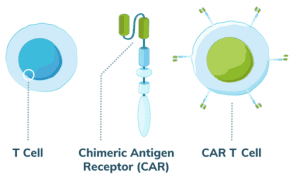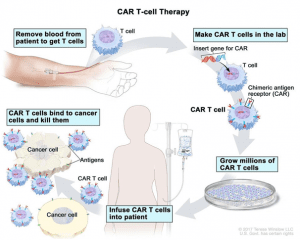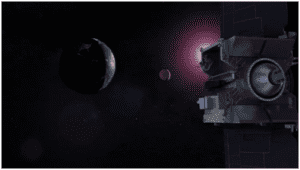1. GREEN CREDIT PROGRAM (GCP) AND THE ECOMARK SCHEME INITIATIVES
TAG: GS 3: ECOLOGY AND ENVIRONMENT
THE CONTEXT: Recently, the Green Credit Program (GCP) and the Ecomark Scheme initiatives have been introduced by the Ministry of Environment, Forest and Climate Change.
EXPLANATION:
- It seeks to encourage environmentally friendly practices rooted in tradition and conservation, reflecting the ideas of LiFE concept.
- These two pioneering initiatives indicates the country’s pro-active approach to climate change, sustainability and promotion eco-conscious practices.
GREEN CREDIT PROGRAM (GCP): INCENTIVIZING ENVIRONMENTAL ACTIONS:
- Green Credit Program (GCP) has been notified on 13th October, 2023.
- It is an innovative market-based mechanism designed to incentivize voluntary environmental actions across diverse sectors, by various stakeholders like individuals, communities, companies etc.
- The GCP’s governance framework is supported by an inter-ministerial Steering Committee.
- The Indian Council of Forestry Research and Education (ICFRE) serves as the GCP Administrator, responsible for program implementation, management, monitoring, and operation.
- In its initial phase, the GCP focuses on two key activities:
- Water conservation and
- Afforestation
- Draft methodologies for awarding Green Credits have been developed and will be notified for stakeholder consultation.
- These methodologies set benchmarks for each activity/process, to ensure environmental impact and fungibility across sectors.
- The Green Credit Registry and trading platform, being developed by ICFRE along with experts, would facilitate the registration and thereafter, the buying and selling of Green Credits.
- The Administrator will grant a Green Credit certificate which will be tradable on the green credit platform.
ECOMARK SCHEME: PROMOTING ECO-FRIENDLY PRODUCTS:
- The philosophy behind LiFE, (Lifestyle for Environment) is nudging individual choices and behaviour towards sustainability.
- In line with this approach, the MoEF&CC has released its Ecomark notification on 13th October 2023 replaces the previous Notification.
- It will help consumers to make choices among products that are eco-friendly in their design, process etc.
- It provides accreditation and labelling for household and consumer products that meet specific environmental criteria while maintaining quality standards as per Indian norms.
- Products accredited under the Ecomark Scheme will adhere to specific environmental criteria, ensuring minimal environmental impact.
- It will build consumer awareness of environmental issues and encourage eco-conscious choices.
- It will also motivate manufacturers to shift towards environmentally friendly production.
- The scheme seeks to ensure accurate labelling and prevent misleading information about products.
- The Central Pollution Control Board administers the Ecomark Scheme in partnership with Bureau of Indian Standards (BIS), which is the national body for standards and certification.
FOR MORE INFORMATION ON LiFE (Lifestyle for Environment), PLEASE REFER TO THE SEPTEMBER CURRENT AFFAIRS MAGAZINE.
SOURCE: https://pib.gov.in/PressReleasePage.aspx?PRID=1967476
2. STATE INFORMATION COMMISSIONS
TAG: GS 2: POLITY
THE CONTEXT: Recently, a report is released by Satark Nagrik Sangathan (SNS) regarding the performance of Information Commissions in India.
EXPLANATION:
- According to the report released by the SNS (an organisation trying to hold the government accountable vis-a-vis the Right to Information Act, 2005), 29 information commissions in India are completely defunct.
- Jharkhand, Telangana, Mizoram and Tripura have had no information commission with the incumbents retiring.
- Manipur has been functioning without a chief for more than 2 years and another officer has been made acting commissioner, though no such provision exists in the act or law.
- There are now vacant leadership positions in six information commissions, including the Central Information Commission and those of Manipur, Chhattisgarh, Maharashtra, Bihar, and Punjab.
- The 2022 assessment has found that more than 3 lakhs appeals and complaints are pending in the 26 information commissions.
- The report found that the commissions did not impose penalties in 91% of the cases where penalties were potentially imposable.
STATE INFORMATION COMMISSION:
- The State Information Commission was constituted under the Right to Information Act of 2005.
- The State Information Commission is a high-powered independent body which interalia looks into the complaints made to it and decides the appeals.
- It entertains complaints and appeals pertaining to offices, financial institutions, public sector undertakings, etc
- The Commission consists of a State Chief Information Commissioner and not more than ten State Information Commissioners.
- They are appointed by the Governor on the recommendation of a committee consisting of the Chief Minister as Chairperson, the Leader of Opposition in the Legislative Assembly and a State Cabinet Minister nominated by the Chief Minister.
- The State Chief Information Commissioner and a State Information Commissioner shall hold office for such term as prescribed by the Central Government or until they attain the age of 65 years, whichever is earlier.
CHALLENGES FACED BY STATE INFORMATION COMMISSION:
- High Appeal and Complaint Pendency: Hearings are delayed and commissioners are overworked when seats go vacant. A slow resolution process is frequently the result of insufficient staffing and resources.
- Delay in Commissioner Appointment: Political influences in the appointment process can hamper impartial appointments. The commission’s operation is hampered by failure to make appointments on schedule.
- Decrease in autonomy and independence: The independence of information commissions may be threatened by efforts to weaken the Act. The independence and effectiveness of commissioners are compromised when their status or authority are reduced.
ACTIONS TAKEN TO IMPROVE THE FUNCTIONING OF INFORMATION COMMISSIONS:
- Giving the commissions a sufficient amount of financial resources and infrastructure support.
- Appointing commissioners with diversity, and filling vacancies as soon as possible.
- Streamlining the processes for submitting and resolving complaints and appeals.
- Establishing online platforms where people may submit applications, appeals, complaints, and check on the progress of those submissions.
- Providing staff and commissioners with frequent training and capacity-building programs.
3. CHERIYAPANI
TAG: GS 3: ECONOMY
THE CONTEXT: Recently, an international, high-speed passenger ferry service Cheriyapani between Nagapattinam on the eastern coast of Tamil Nadu and Kankesanthurai in the northern province of Sri Lanka, has been resumed after a gap of nearly four decades.
EXPLANATION:
- The high-speed craft (HSC) Cheriyapani, embarked on its journey around 8.15 a.m. with 50 passengers and 12 crew members.
- Ferry service will help strengthen cultural, commercial, and civilisational ties between the two nations.
CHERIYAPANI:
- The high-speed ferry operated by the Shipping Corporation of India has a capacity of 150 pax.
- The distance of about 60 nm (110 Km) between Nagapattinam and KKS will be covered in approx. 3.5 hours depending on sea conditions.
- To commence the service, the Government of India supported the Tamil Nadu Maritime Board in upgrading facilities at the Nagapattinam port.
- Similarly, the Government of Sri Lanka has created necessary infrastructure at the port of KKS.
- The Government of India’s efforts to start the ferry service are in line with the Government’s priority to enhance connectivity with neighbours and in the wider Indian Ocean Region.
IMPORTANCE OF THE FERRY SERVICES:
- A direct passenger ferry between Sri Lanka and India will provide an efficient and cost-effective means of travel for the people of the two countries, boost tourism and trade links and strengthen ties.
- The ferry will also enhance economic activity around the two ports and invigorate local economies.
- It may be recalled that direct air connectivity between Chennai and Jaffna, which was suspended during the Covid pandemic, was resumed in December 2022.
- Enhancing direct connectivity with the Northern Province of Sri Lanka complements Government of India’s other ongoing development initiatives in the region.
- The Governments of India and Sri Lanka will continue to work towards commencement of ferry services between other ports, including the traditional route between Rameswaram- Talaimannar.
SOURCE: https://indianexpress.com/article/india/india-sri-lanka-ferry-service-set-to-begin-tuesday-8972757/
4. NexCAR19
TAG: GS 3: SCIENCE AND TECHNOLOGY
THE CONTEXT: Recently, Mumbai-based Immunoadoptive Cell Therapy Private Limited (ImmunoACT) announced the approval of India’s first chimeric antigen receptor (CAR) T-cell therapy Called NexCAR19 by the Central Drugs Standard Control Organization (CDSCO).
EXPLANATION:
- ImmunoACT is an IIT Bombay-incubated company founded in 2018 and works on converting research into pharmaceutical products.
- CAR-T cell therapy cost around $400,000 or over Rs 3.3 crore and patients could avail of it in the United States.
- With this development, the therapy will be accessible at 20 Indian government and private hospitals treating cancer across major cities at around Rs 30-35 lakh per patient,
NexCAR19:
- It is an indigenously developed CD19-targeted CAR-T cell therapy.
- CD-19 is biomarker for B lymphocytes and can be utilised as a target for leukaemia immunotherapies.
- It will be used for treating relapsed-refractory B-cell lymphoma and leukaemia.

HOW DOES IT WORK?
- For CAR-T-cell therapy, a type of cancer immunotherapy treatment, blood is first drawn from the patient.
- Then, immune cells called T-cells are genetically modified in a laboratory and are injected back into the patient to enable the cells to locate and destroy cancer cells more effectively.
- Investigations were led by Dr Hasmukh Jain and Dr Gaurav Narula and their teams at Tata Memorial Hospital in Mumbai.
- It is a major breakthrough as the therapy is not available in India outside of clinical trials.
- The multi-centre Phase I and II clinical trials were conducted with 60 patients with r / r B-cell lymphomas and leukemia.
- The clinical data indicated a 70 per cent overall response rate.

SIDE EFFECTS:
- CAR T-cell therapy is generally accompanied by some side effects.
- One of them, according to the American Cancer Society, is cytokine release syndrome (CRS).
- It is when CAR T-cells multiply, they can release large amounts of chemicals called cytokines into the blood, which can ramp up the immune system.
- In comparison to other CAR T-cell therapies, the safety profile of CRS and the absence of neurotoxicity indicates a significant improvement.
- NexCAR19 has shown an excellent balance of efficacy and low toxicity, which is a significant advantage in clinical management (post-infusion) of the patients in our resource-constrained settings.
5. ASTEROID BENNU SAMPLE
TAG: GS 3: SCIENCE AND TECHNOLOGY
THE CONTEXT: According to National Aeronautics and Space Administration (NASA), Samples collected from 4.5-billion-year-old asteroid Bennu could indicate the building blocks of life on Earth.
EXPLANATION:
- Initial studies on the samples collected in space and recently brought back on earth have shown evidence of high-carbon content and water-bearing clay minerals.
BENNU:
- Bennu is a small near-Earth asteroid that passes close to Earth every six years.
- It is 4.5 billion-year-old relic of our solar system.
- Bennu’s current composition was established within 10 million years of the formation of our solar system.
- The material collected from the asteroid acts as a time capsule from the earliest days of our solar system and can help us answer big questions about the origins of life and the nature of asteroids.
- The Origins, Spectral Interpretation, Resource Identification, and Security-Regolith Explorer, better known as OSIRIS-REx, is the first United States mission to collect a sample from an asteroid.
- The spacecraft was launched on September 8, 2016 and the sample was collected three years ago.
- OSIRIS-REx returned to Earth on September 24, 2023 to drop off material from asteroid Bennu.
- The mission has provided an “abundance” of samples.
- The goal of the OSIRIS-REx sample collection was to collect 60 grams of asteroid material.
- But scientists disassembling the sample return hardware found bonus particles covering the outside of the collector head, canister lid and base. The total sample weight has been estimated at around 250 gms.
- After dropping off the sample, it continued on to a new mission to explore the asteroid Apophis.

FOR MORE INFORMATION ON BENNU AND OSIRIS-Rex, PLEASE REFER TO THE SEPTEMBER CURRENT AFFAIRS MAGAZINE.
Spread the Word



